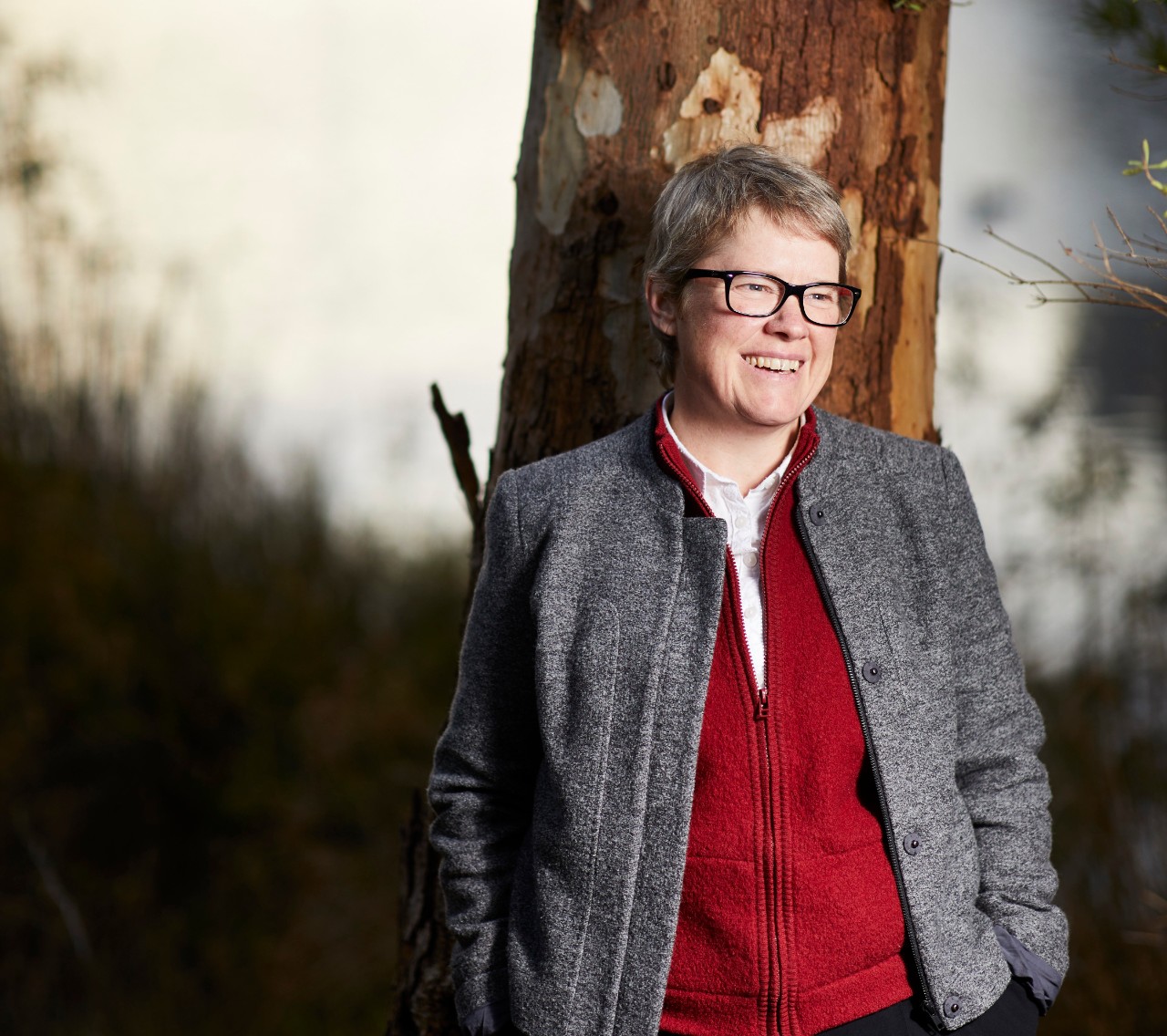Why study Law at Flinders?
Expect More of Law.
Law creates the framework for how we interact with the world. Study the Bachelor of Laws - Legal Practice Entry at Flinders and gain the knowledge and skills to practise as a lawyer. Or, study the prestigious Juris Doctor (JD), Masters level qualification that'll help accelerate your career by adding legal skills to your repertoire or allow you to shape the future of law as a barrister or solicitor.
When you study at Flinders, you can qualify to practise law in just four years of study. Flinders offers an all-in-one under graduate legal education: Graduate with a Bachelor of Laws and seamlessly transition to the Graduate Diploma in Legal Practice, delivered in collaboration with the Leo Cussen Centre for Law in the Adelaide CBD. You'll experience a future-ready curriculum with a focus on technology, health and social impact. You'll enjoy the perfect balance between traditional legal training, real-world experience, and skills for the future. You can even fast-track completion of your studies with intensives.
Your legal training will be guided by an expert teaching team committed to social justice, with vast industry experience and legal scholarship in areas such as criminal, property, environmental and international law. Plus, you'll gain practical experience, build your confidence and grow your networks with placements, projects, field studies and simulated workplace settings including at the Flinders Legal Centre, where our Law students work with supervising solicitors offering free, independent and confidential legal advice to the community.
Become a lawyer, faster at Flinders University. Explore your study options at Bedford Park, our City campus, and online.
STUDY FOR TOMORROW
WITHOUT MISSING TODAY.
Flexibility from
the start
Practical and constantly connected
Engaging, above-standard learning
Supported on
every level
Study online
Explore our range of undergraduate and postgraduate courses available online, including:
Get Inspired
Learn about the course with our Dean of Law, Tania Leiman.
Study the Bachelor of Laws - Legal Practice Entry at Flinders University and gain the knowledge and skills to practise as a lawyer and start your Fearless law career.

Law student’s research sparks global attention on public health crisis in Mongolia.
While completing a seven-week internship with the National Human Rights Commission of Mongolia, Flinders Law student Marielle made a significant global impact.
No.1 in SA
in Law & Paralegal Studies for skills development and student support.
(The Good Universities Guide 2024 (undergraduate), public SA-founded universities only)
Five Stars
in Law & Paralegal Studies for learner engagement and student support.
(The Good Universities Guide 2024 (postgraduate))
Five Stars
in Law & Paralegal Studies for learner engagement and student support.
(The Good Universities Guide 2024 (postgraduate))
Qualify to practise law in four years
Become a lawyer. Start with our Bachelor of Laws - Legal Practice Entry, then seamlessly transition into a Graduate Diploma in Legal Practice.

Flexibility to study your way.
Stand out from the crowd. Study a combined degree.
Interested in more than one area?
Flinders has a variety of Law combined degree options that allow you to pursue multiple passions and broaden your career opportunities.
Combining studies in Law with a Bachelor of International Relations and Political Science opens the door to a multitude of careers in international organisations, aid and human rights, government, transnational crime, terrorism, and non-government organisations.
By combining studies in Law with Business, you will develop the professional legal skills to prepare you for a job in the legal profession and gain an understanding of key issues that businesses deal with every day.
The combination prepares you for a broad range of careers in law but also business, government, leadership and not-for-profit settings.
By combining studies in Law with Arts, you will develop the professional legal skills to prepare you for a job in the legal profession and gain a strong knowledge base in the areas you’re passionate about, develop the complex critical thinking and problem solving skills required to solve some of the world’s greatest challenges.
The combination prepares you for a broad range of careers in law as well as many other fields, given the broad scope of specialisations available in Arts.
More Placements
Through unique placements, our students have the opportunity to get up close and personal with the law - and make a real difference along the way.
Create an app for social justice
Learn how to make your very own online app. Our Law students team up with Computer Science students to bring their ideas to reality, and make apps that improve social justice outcomes.
Intern in Mongolia
In partnership with the Law Foundation of South Australia, Flinders University offers a Mongolian Human Rights Internship to law students.
Flinders Legal Centre
As part of their studies, students gain hands-on experience by working with supervising solicitors to provide free, independent, and confidential legal advice to the community.
Student Brett Maryniak interning in Mongolia.

“
Flinders opened doors for me that I never would have been able to open on my own. I was given so many opportunities, and made so many professional connections by attending a uni that had such a strong focus on practical experiences.
Marielle Intveld, Law
”

“
Combining law and psychology, coupled with my lived experience as a proud Aboriginal person, has allowed me to apply a trauma-responsive, holistic, and compassionate approach with a cultural lens to clients and community.
Ashum Owen, Law and Psychology
”
Study a Juris Doctor
Flinders University is ranked in the top 2% globally and No. 2 in Australia in Law & Paralegal Studies for teaching quality*.
The Juris Doctor (JD) is an internationally recognised professional legal qualification at masters level for graduates of other disciplines. It is offered fully online, allowing flexibility to balance your other commitments.
Ready to turn your passion for law into a profession?
The Flinders Juris Doctor is designed for leaders and career changes looking to enhance their skills with legal expertise or those aiming to practise law. Personalised student support features throughout, including the Juris Doctor Mentor Network, which can help you grow your network as you study, 100% online.
Learn from the best
Flinders Law academic staff are recognised as leaders in their fields both in Australia and around the world. Our academics draw on their industry experience and legal scholarship to deliver innovative courses that prepare graduates for career success.
Flinders Law is committed to the rule of law. Our curriculum is informed by values that support democratic governance by law, fairness in dispute-resolution processes, access to justice (including promotion of community understanding of legal rights and obligations), and equality. To promote an understanding of the processes of deliberative reform, we seek to instil in our students an open and informed attitude towards the role of law and legal institutions in a social context.
Tania Leiman
Professor and Dean of Law
A leader and innovator in legal education, Tania is committed to producing modern law graduates equipped to adapt and thrive in the future job market. “The legal industry is going through a major transformation with the impact of technology fundamentally changing the way legal services are delivered,” she explains. “Flinders Law balances traditional legal teaching with new offerings that provide graduates with the skills to solve future problems at the intersection of law and technology”.
Tania’s current research looks at the legal implications of emerging driverless and mobility technologies. What will such technologies mean for individuals and society? How will we minimise the risks and maximise the opportunities they present? How can the law protect rights and avoid unjust or inequitable outcomes? She is also exploring the impact emerging technologies have on what lawyers do with her research findings shaping the curriculum and content taught at Flinders Law.
Tania is admitted as a barrister and solicitor in the Supreme Court of South Australia and the High Court of Australia and holds a current unrestricted practising certificate. She began teaching law at Flinders in 1994 and participates in the legal sub-group member the Australian Driverless Vehicle Initiative [ADVI]’s Policy & Risk Group, and is also a member of the award-winning Flinders Legal Advice Clinic. Tania has been the recipient of multiple teaching awards, including Faculty, Vice Chancellor’s and national Australian Government teaching excellence awards for her work as an individual academic and as part of a clinic legal education team. Tania was appointed Dean of Flinders Law in 2017.

Hossein Esmaeili
Associate Professor
For Hossein, the law is a vital mix of passion, innovation, change and adaptation. His work is inspired by academic freedom and the ability to influence and change law and policy, both locally and internationally. “As a law academic, I address unanswered questions in my legal scholarship, engage with students and broader sections of society,” he explains. “It’s a lifelong journey of learning and growing.”
Hossein teaches real property law, trusts, law of the sea, energy and environmental security and international law. He joined the department in 2005, after seven years teaching at UNSW, the University of New England, and Western Sydney University.
His current research interests include Australian perspectives on international and comparative law particularly with regards to global energy, resources and the environment as well as Islamic and Middle Eastern law.
Hossein has authored, co-authored, and edited five scholarly books, including The Legal Regime of Offshore Oil Rigs in International Law (Ashgate Publisher, 2001) and The Boundaries of Australian Property Law (Cambridge University Press, 2016). He has published in leading international law journals worldwide. He has been a Co-Rapporteur of a committee of the International Law Association (since 2011) and serves on the editorial boards of a number of law journals in Australia, Asia and Europe.

Margaret Davies
Matthew Flinders Distinguished Professor
Margaret’s interest in how the law articulates ideas of social justice in a practical context drew her to a legal teaching career. “I’m interested in the way those ideas develop over time,” she explains. “Law is a key focal point for expressing our collective values and promoting social justice – it has a strong historical basis but is also critical to orderly social change.”
She completed a doctorate in critical legal theory at Sussex University and became a Flinders University Law School foundation staff member in 1992. Since then she has been a visiting scholar at Birkbeck College, Umea University, UBC, University of Kent, Victoria University of Wellington and was Leverhulme Visiting Professorship at Kent University. She was a member of the ARC College of Experts’ Humanities and Creative Arts Panel from 2010 – 2012 (Chair, 2011) and serves on advisory boards for Social and Legal Studies, Feminist Legal Studies, and the Macquarie Law Journal.
Margaret's current research interests include how Western philosophy's founding assumptions dividing human society from its broader context – environment, technology, property, etc. – continue to shape legal concepts today. Her work contributes to meaningful conversations about how law and property can adapt to better reflect our future needs.

Dr James Scheibner
Lecturer
After completing his undergraduate education in computing and law at the University of Tasmania, James undertook a PhD with Professor Dianne Nicol and Associate Professor Jane Nielsen at the Centre of Law and Genetics, with Associate Professor Michael Charleston as a research supervisor. James's thesis focused on the relationships between informal norms and formal intellectual property rights in open source bioinformatics development.
James then completed a two year postdoctoral research fellowship at the Health Ethics and Policy Laboratory in the Department of Health Sciences and Technology, ETH Zurich, headed by Professor Effy Vayena. James worked with the Laboratory for Data Security, headed by Professor Jean-Pierre Hubaux, as well as the Lausanne University Hospital, on the Data Protection and Personalised Health Project. The purpose of this project was to develop a set of privacy enhancing tools for distributed queries on medical data. James conducted the ethical and legal assessment as part of this project.
James's research interests include intellectual property and industrial property law (with a specific focus on software and biotechnology inventions), data protection law and health law. James's research interests also extend to bioethics, institutional economics (such as common pool resource theory) and the application of these fields to these areas of law. James is topic coordinator for Torts and Advanced Legal Research. In addition, James teaches Law in a Digital Age as part of the Flinders University future focused law degree.

Rob Chalmers
Senior Lecturer
Rob brings a varied and extensive professional background to bear in his teaching and aims to give students insights into real practice situations to help prepare them for their futures.
He has worked as a lawyer, educator, manager, company director and commercial advisor across a broad range of fields including defence, agriculture and health. He has special depth in intellectual property, technology and commercialisation and is particularly interested in the interaction between the development of technology, society and regulation.

Simone Daniells
Associate Lecturer
Dedicated Course Mentor for the Juris Doctor
Simone is a qualified lawyer with over 13 years' experience in professional private practice. Her professional experience has included commercial litigation; contract negotiation and drafting; business sales and acquisitions; intellectual property; real property; employment law; corporate governance and regulatory compliance.
In addition to her legal experience, Simone has a strong background in legal and business innovation. She has brought this expertise to her teaching practice in the Bachelor of Laws program by equipping students with problem-solving and collaborative skills using design thinking concepts.
In 2023, Simone was appointed as the Dedicated Course Mentor for the Flinders University Juris Doctor program where she serves as a key interface between academic staff and students, helping our Juris Doctor students stay connected and reach their full potential.

Dr Samantha Kontra
Senior Lecturer
Samantha has taught at Flinders Law since 2012, in various topics. She currently teaches Essential Legal Skills and Torts in the LLB program, and The Australian Legal System and Legal Analysis and Problem Solving in the Juris Doctor Program.
Samantha was heavily involved in the New in Law Orientation and Peer Mentoring Programs from 2007-2020, taking sole responsibility for these programs in 2016-2020.
Samantha has experience teaching in topics including: Legal Research and Writing, Criminal Law, Tort Law, Property Equity and Trusts, Dispute Management, and Family Law. Samantha has additionally taught in the School of Nursing and Midwifery in Law and Ethics Applied to Nursing.
Samantha has recently completed her PhD on legal negotiation and legal education, entitled 'The Forgotten Component of Legal Negotiation: A Proposal to Improve Education on Legal Negotiation Preparation in Australian Law Schools'.

Frequently asked questions
Yes! Learn from the best. Flinders Law academic staff are recognised as leaders in their fields both in Australia and around the world. Our academics draw on their industry experience and legal scholarship to deliver innovative courses that prepare graduates for career success.
Studying law is both a challenging yet highly rewarding feat, and preparation is key!
Many students expect to become the next Elle Woods or Harvey Specter when studying law. While this could happen in the future, it takes a great deal of hard work and commitment to study. There is a lot of reading and reading takes a lot of time. Some people find reading case law and textbooks quite dense and difficult at first. Our great teaching staff will help you learn ways to manage your reading effectively and guide you through the course.
Core topics, including: Torts; Contracts; Property, Equity and Trusts; Jurisprudence; Real Property Law; Corporate Law; and two law option topics to develop areas of interest.
You can go in-house for a corporation, work at a local law firm, or join the big 4 consulting firms (Deloitte, KPMG, PwC and EY). You can become part of the justice system, serving as a prosecutor, lawyer for the defence, or even one day as a judge.
A law degree teaches you to think critically, solve problems, research, communicate, work in teams and distil large, complex rafts of information into succinct writing. While these skills are important in almost any job, here are 5 careers that value law graduates highly:
- Accounting
- Journalism
- Politics
- Wealth Management/investment banking
- Police Prosecutor
Combining a law degree with another field of study can be a strategic decision that not only enhances your legal expertise but also opens doors to a myriad of career opportunities.
Flinders University, known for its commitment to interdisciplinary education, offers a variety of combined degrees that seamlessly integrate with law studies, providing a solid foundation for a successful and fulfilling career:
- History
- Political science
- Psychology
- Criminology
- English
- Economics
- Philosophy
I am an
International Student
Australia or New Zealand.
I am a
Domestic Student
I'm an Australian Permanent Resident
(including Humanitarian Visa holders).
![]()
Sturt Rd, Bedford Park
South Australia 5042
South Australia | Northern Territory
Global | Online
CRICOS Provider: 00114A TEQSA Provider ID: PRV12097 TEQSA category: Australian University








